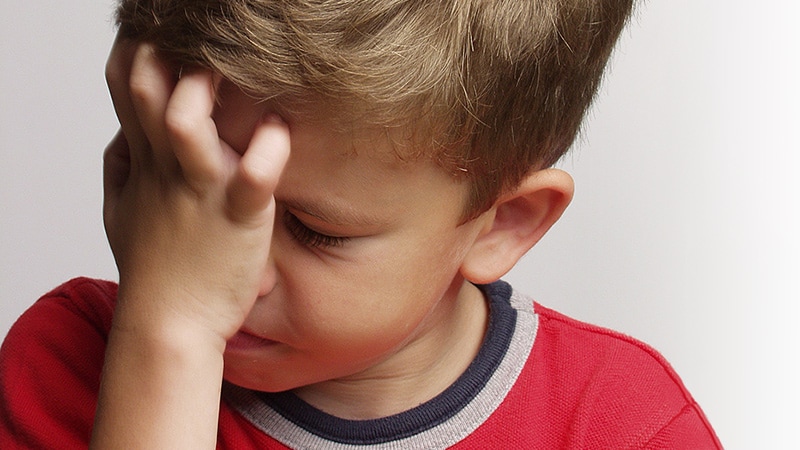When a parent develops cancer, children and adolescents are more likely to miss school, visit emergency departments, and experience negative mental health consequences, a new study shows.
"Everyone who has ever been touched by cancer knows the havoc it can wreak on individuals and families," lead author Zhiyuan Zheng, PhD, senior principal scientist and health economist at the American Cancer Society (ACS), said in a news release. "Our study clearly shows the devastating effects that parental cancer has on children in terms of financial hardship and mental and physical health."
The study was published online April 11 in JAMA Pediatrics.
Receiving a cancer diagnosis can affect members of the family, but experts know little about the impact parental cancer can have on a child’s well-being.
Using recent National Health Interview Survey data, Zheng and colleagues identified 1232 children (mean age, 11.7 years) living in families with a history of parental cancer along with 33,870 peers (mean age, 10.8 years) in families without a parental cancer history.
In unadjusted models, children from families with a parental cancer history were more likely to miss school due to illness or injury (odds ratio [OR], 1.33) and not receive needed medical care due to cost (OR, 1.60), compared with peers without this challenge.
These children were also more apt to take prescription medications for at least 3 months (OR, 1.70), visit the emergency department (OR, 1.56), and experience worse mental health. These mental health issues included feeling worried (OR, 1.48) or unhappy, depressed, or tearful (OR, 1.61), having trouble attending to chores or homework (OR, 1.61), as well as encountering challenges concentrating, regulating emotions, or getting along with others (OR, 1.75).
In fully adjusted models, most child health outcomes remained adversely associated with a history of parental cancer.
"The scope and depth of the associations between history of parental cancer and school absenteeism and other child health outcomes are concerning, especially because they may lead to more serious health issues for these children in adulthood," Zheng and colleagues write.
Zheng's team also hopes to investigate how parental cancer impacts mental and physical well-being over the longer term.
"It’s important that oncologists, pediatricians, and primary care physicians screen children with a parental cancer history to determine how they have been impacted and begin to provide care and support as needed," Zheng said.
Hidden Collateral Impact of Cancer in Families
In a related editorial, Chris Feudtner, MD, PhD, MPH, from the Children’s Hospital of Philadelphia, and colleagues note that much of medical care proceeds as though "blithely unaware" of the collateral impact of the patients’ illness on the health and well-being of other family members.
"This collateral impact is important. Pediatric illness has been shown to have profound effects on parental well-being. The converse is also true," Feudtner and colleagues write.
It’s clear that families of individuals with serious illness need more support than the current healthcare system provides.
"Addressing the needs of these families requires not just providing additional support and resources at individual health institutions but also carefully reevaluating how professionals and programs in different areas of the family’s life can support the families and what policies at the local, state, and federal level would make it easier for families to receive the support they need," Feudtner and colleagues conclude.
The study had no specific funding. Zheng and Feudtner report no relevant disclosures.
JAMA Pediatrics. Published online April 11, 2022. Article. Editorial.
For more news, follow Medscape on Facebook, Twitter, Instagram, and YouTube.
